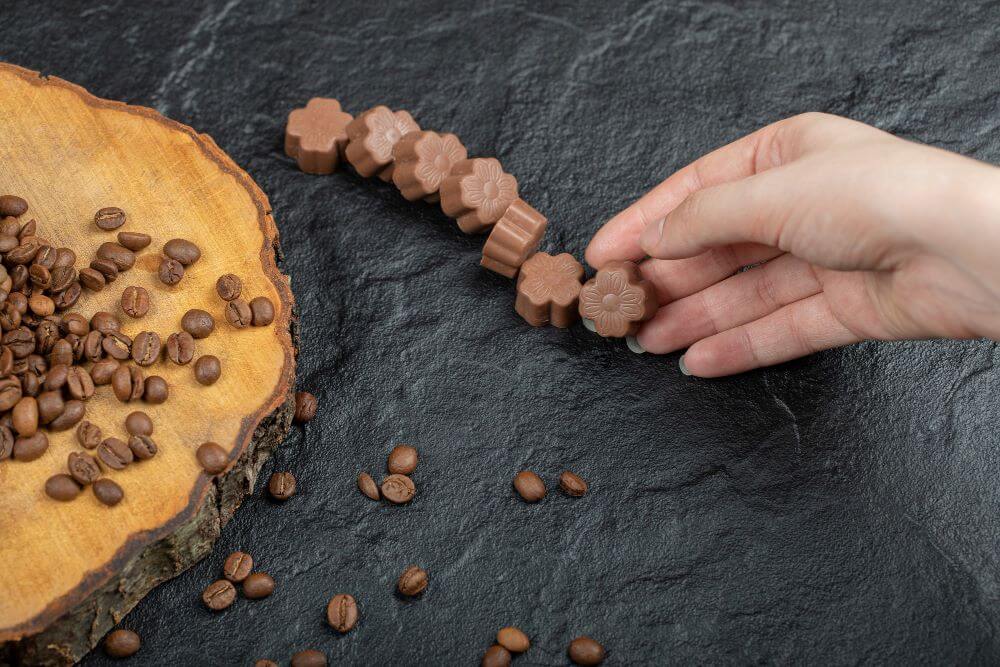Let’s try to imagine a world where people would have to wake up, stumble to their kitchens, and reach for their favorite chocolate bar only to realize there are none left. And it’s not only their house, but the entire world. Not a single business in the world has any cocoa left to produce chocolate. Cocoa vanished. It’s erased from existence, and people feel like they’re living a cruel cosmic prank. Yes, we all hear the collective gasp of horror. We feel it in our bones. A world with no cocoa is basically a world where comfort is gone. Breakups are more tragic than they should be, the desserts are bland and depressing, and Valentine’s Day is dead. Who would even want to celebrate it with no chocolate in sight?
However, let’s just play along with this movie script and imagine what chocolate producers would do if cocoa disappeared tomorrow. Would the industry survive? Are there other secret ingredients a business could use to save people’s sweet cravings? Here is a dive into the cocoa-less chaos.
The Carob Comeback, Also Called The Nice Try Option
Carob is the first contender to rise into the spotlight because it has always been labelled as the health-conscious cousin of cocoa – it’s mild, naturally sweet, and famously caffeine-free. You will find on the internet wellness gurus preaching about the benefits of this guilt-free chocolate alternative. Do you want it? Let’s be real, you and me, carob is what it is, the polite, quiet twin that never gets invited to the party. Let’s say that it could be fine in brownies, but it won’t ever melt on your tongue with that deep, silky drama chocolate does. Will it make your endorphins dance? Not really.
Yes, carob will bring some significant hope in a world without cocoa, could even live up to the name, the new brown gold, but won’t ever replace cocoa. It will continue to be sold by influencers who swear that it tastes just like chocolate and leave you craving for the real thing.
Chicory Root, or The Bold And Bitter Underdog
Let’s go to the next in line. The chicory root has entered the chat. You probably know it as a coffee substitute with a butty, roasted flavor that gives your taste buds a little edge. Some paired it with butter and sugar and called it nouveau chocolate. Would you do it? It could work. Sort of. It has a deep, earthy, and slightly bitter flavor. In theory, one might say that we’ve got a winner. But the thing is, it lacks cocoa’s creamy richness. Chicory is more of a product for artisan experimental cafes than something you would enjoy as a late-night craving satisfaction. The chicory might impress a couple of food critics, but the average chocolate lover won’t buy anything made of it. You would probably hear them crying in the corner.
Coffee, The Caffeine Contender
If one day, cocoa might say goodbye to planet Earth, coffee might step in as the dramatic dive, the bold hero of the story. Let’s try to picture this: you get mocha-flavored truffles without the mocha. Espresso brownies, latte fudges. Coffee already flirts with the products that naturally include cocoa, and has made its way in half of our recipes, so it could stand a chance to take center stage. But there’s a catch. There always is. Coffee is bold, with a bitter personality, so how could it replace cocoa’s mellow and smooth depth? You would never cast a dark rock star like Yungblud into a cheesy romance movie. It could be a delicious combination. But it will fail to melt our hearts the same way as Chad Michael Murray. The coffee industry will definitely thrive in a world with no cocoa, but it won’t replace the sweetheart of the planet.
Lacuma, The Smooth Operator From Peru
If one day chocolate producers can no longer buy cocoa wholesale, they might start to look into lacuma, which has often been called the quiet hero of the times when there is no cocoa in the world. It’s a Peruvian fruit with a subtle caramel-maple flavor, and it’s famously creamy and dreamy. South Americans have often used it in desserts for centuries because it blends wonderfully with pastries, ice cream, and even plant-based chocolate bars. If one day cocoa disappears from the world. Lacuma could have its moment, and wholesalers like ofi might even start adding it to their stocks. Lacuma won’t replace cocoa, but it could give people a new kind of sweetness, soft, golden, and a little exotic. Would people accept it instead of chocolate? Who knows? Some say no, but others think it pretends really well for the moment.
Black Sesame, or The Unexpected Dark Horse
Let’s make the discussion more interesting. Black sesame has a gorgeously toasty and nutty flavor, and an inky, dramatic color, that could fool some into stating it has a dark chocolate aesthetic. The thing is, black sesame desserts have been trending hard in Asian bakeries, and you can find them in countless products, from rich cakes to creamy lattes. Does it taste like cocoa? Not really. It’s smokier, deeper, and has a slightly savory taste, but if we’re living in a desperate, apocalyptic cocoon world, black sesame will steal some hearts. Instead of a cocoa bar, you have in the drawer black sesame cookies, truffles, or ganache. Modern, Chic. Mysterious. Let’s say that it would be a fashionable choice.
Lab-Grown Cocoa, The Synthetic Solution
Well, we’re living in the digital age, and technology refuses to sit out any trend, so scientists won’t let the world go down so badly without at least trying to create a synthetic solution. Lab-grown cocoa is sustainable, engineered, and cruelty-free, so it might become the next frontier. Theoretically, it could be the best solution because if they get it right, we would get something almost identical. They could replicate the taste molecule by molecule. Perfect the texture with precision. The only thing would be that deep down, we would know that it’s not the real thing. It’s a clone, so it lacks that earthy, soulful, almost magical quality.
In a world with no cocoa, desserts might still exist, but people would lose the joy of enjoying them the same way.

















